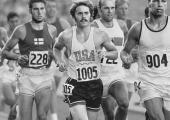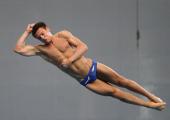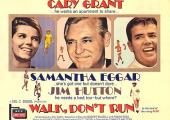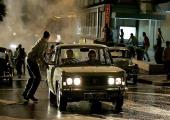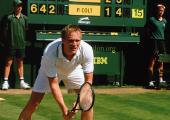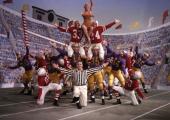theartsdesk Olympics: Football under Hitler's eyes
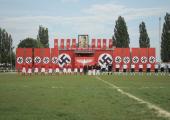
All is not fair in war and football in 1942 Nazi-occupied Ukraine
A football team normally heads out onto the pitch determined to win – unless, perhaps, the match has been fixed. Or unless they’ve been under Gestapo pressure to lose. That was what happened at the legendary “Death Match” in Kiev in August 1942. A team of Ukrainians - eight drawn from previous Dynamo Kiev sides and three from local Lokomotiv - playing under the moniker FC Start had reassembled after the Nazi invasion of the city. Most of them had been working in a local bakery.


